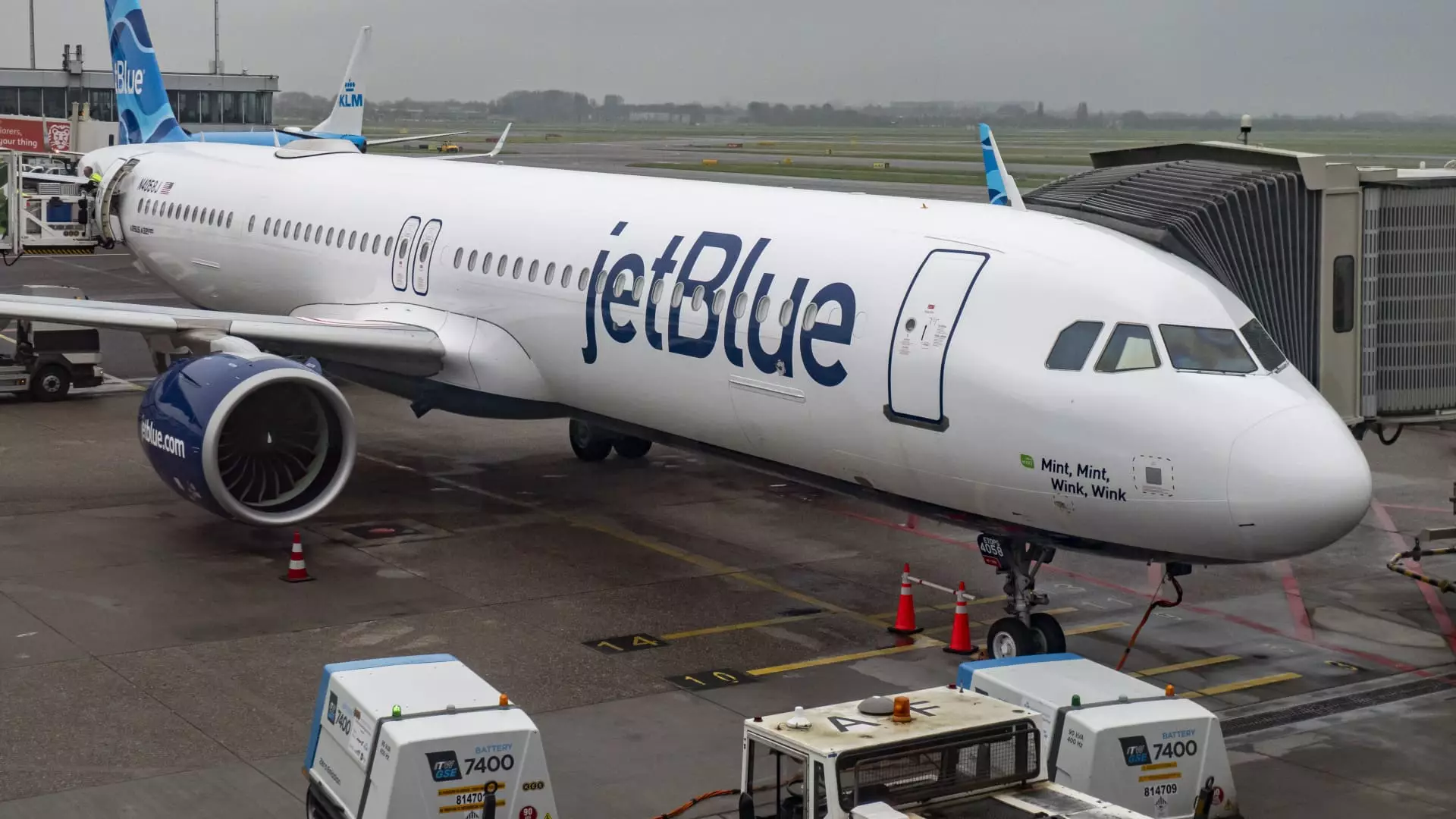In a decisive shift towards financial stability, JetBlue Airways announced significant changes to its flight schedule aimed at curbing losses and enhancing profitability. As the airline grapples with the realities of a post-pandemic market, it has opted to eliminate several underperforming routes, effectively reallocating resources to areas with higher demand. This alteration comes amid predictions of improved revenues and booking figures for the months of November and December, driving a substantial increase in the company’s stock prices.
The adjustments include the cancellation of flights from Fort Lauderdale to Jacksonville, as well as the discontinuation of several routes from New York’s JFK Airport to cities such as Austin, Houston, Miami, and Milwaukee. Notably, JetBlue will also cease operations in San Jose, California, highlighting a strategic retreat from markets that have proven less lucrative, particularly in the face of entrenched competition from legacy carriers.
The decision to end service between JFK and Miami underscores JetBlue’s challenges in this key market. In a memo circulated among staff, Vice President Dave Jehn indicated that the airline’s experiences in Miami post-COVID have not met profitability expectations, largely due to the stronghold that major competitors like American Airlines and Delta maintain in that region. With the cessation of this route, JetBlue aims to mitigate the issue of overstaffing in Miami, working to provide alternative options for its crew in other cities.
Despite these cuts, JetBlue remains committed to its Florida operations, continuing service from Boston to Miami as part of its strategy to secure a foothold in profitable markets. The focus seems to be on balancing operational efficiency with the imperative of maintaining a competitive edge against larger airlines.
In alignment with its strategy to refocus on high-demand areas, JetBlue is preparing to announce new European routes next week, hinting at its ambition to cultivate international opportunities. However, this growth will come at the expense of existing services, as JetBlue plans to scale back its JFK to Paris route and will no longer operate summer flights to London’s Gatwick Airport. These moves illustrate the airline’s intent to streamline operations and prioritize flights that yield the best return on investment.
JetBlue’s decision-making illustrates the broader trends affecting the airline industry, where consumer preferences and travel patterns have shifted significantly since the pandemic. Faced with challenges, including the impact of grounded Pratt & Whitney engines and modified passenger demand, JetBlue is making calculated decisions to adapt to the new environment.
JetBlue is also taking steps to accommodate passengers impacted by these route changes, offering alternate travel options or refunds as necessary. This customer-centric approach is crucial in maintaining brand loyalty, especially amid a tumultuous landscape where passengers have a multitude of choices.
JetBlue Airways’ latest strategic moves underscore an adaptive response to a competitive market characterized by fluctuating demand and the persistent influence of dominant legacy carriers. By honing in on profitable markets and minimizing less viable routes, JetBlue aims to stabilize its operations and position itself more favorably for future growth. The airline’s ability to navigate these complex dynamics will be pivotal as it seeks to establish a robust presence in both domestic and international markets moving forward.

